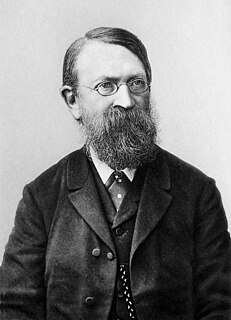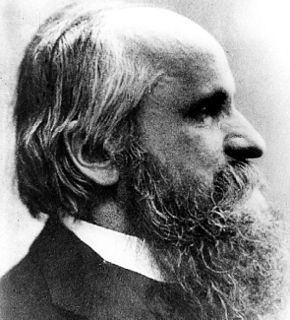 W
WAdolf Bäuerle (real name Johann Andreas Bäuerle was an Austrian writer, publisher and main representative of the Alt-Wiener Volkstheater.
 W
WKarl Emil Franzos was a popular Austrian novelist of the late 19th century. His works, both reportage and fiction, concentrate on the multi-ethnic corner of Galicia, Podolia and Bukovina, now largely in western Ukraine, where the Habsburg and Russian empires met. This area became so closely associated with his name that one critic called it "Franzos country". A number of his books were translated into English, and Gladstone is said to have been among his admirers.
 W
WSigmund Freud was an Austrian neurologist and the founder of psychoanalysis, a clinical method for treating psychopathology through dialogue between a patient and a psychoanalyst.
 W
WEgon Friedell was a prominent Austrian cultural historian, playwright, actor and Kabarett performer, journalist and theatre critic. Friedell has been described as a polymath. Before 1916, he was also known by his pen name Egon Friedländer.
 W
WAuguste Groner, was an Austrian writer internationally notable for detective fiction. She also published under the pseudonyms Olaf Björnson, A. of the Paura, Renorga, and Metis.
 W
WLeopold Alois Hoffmann was a writer and dramatist based for most of his career in Vienna.
 W
WEdmund Gustav Albrecht Husserl was a German philosopher who established the school of phenomenology. In his early work, he elaborated critiques of historicism and of psychologism in logic based on analyses of intentionality. In his mature work, he sought to develop a systematic foundational science based on the so-called phenomenological reduction. Arguing that transcendental consciousness sets the limits of all possible knowledge, Husserl redefined phenomenology as a transcendental-idealist philosophy. Husserl's thought profoundly influenced 20th-century philosophy, and he remains a notable figure in contemporary philosophy and beyond.
 W
WLeopold Kompert was a Bohemian Jewish writer. He was born in Mnichovo Hradiště, Bohemia, and died in Vienna.
 W
WRichard Freiherr von Krafft-Ebing was an Austro–German psychiatrist and author of the foundational work Psychopathia Sexualis (1886).
 W
WKarl Gottfried Ritter von Leitner was an Austrian author and publicist from Graz, Styria, Austria.
 W
WAuguste von Littrow, née Bischoff von Altenstern was a German-Austrian author and women's movement leader.
 W
WErnst Waldfried Josef Wenzel Mach was an Austrian physicist and philosopher, noted for his contributions to physics such as the study of shock waves. The ratio of one's speed to that of sound is named the Mach number in his honour. As a philosopher of science, he was a major influence on logical positivism and American pragmatism. Through his criticism of Newton's theories of space and time, he foreshadowed Einstein's theory of relativity.
 W
WAlexius Meinong Ritter von Handschuchsheim was an Austrian philosopher, a realist known for his unique ontology. He also made contributions to philosophy of mind and theory of value.
 W
WCarl Menger was an Austrian economist and the founder of the Austrian School of economics. Menger contributed to the development of the theory of marginalism, which rejected the cost-of-production theories of value, such as were developed by the classical economists such as Adam Smith and David Ricardo. As a departure from such, he would go on to call his resultant perspective, the "Subjective Theory of Value".
 W
WLeopold Ritter von Sacher-Masoch was an Austrian nobleman, writer and journalist, who gained renown for his romantic stories of Galician life. The term masochism is derived from his name, invented by his contemporary, the Austrian psychiatrist Richard von Krafft-Ebing. Masoch did not approve of this use of his name.
 W
WJoseph Schreyvogel was a Viennese writer and journalist. He also worked as a dramaturge.
 W
WCharles Sealsfield was the pseudonym of Austrian-American journalist Carl Anton Postl, an advocate for a German democracy. He lived in the United States from 1822 to 1826, and then again in 1828/1829. During a final stay from 1853 to 1858 he became a US citizen. Sealsfield is best known for his German-language Romantic novels with American backgrounds, and also wrote travelogues. He returned to Europe about 1829, living in Paris and London before settling in Switzerland in 1832, where he resided for most of the rest of his life.
 W
WAugust Karl Silberstein was an Austrian writer, born in Ofen, Budapest (Hungary). Silberstein was educated at the University of Vienna and supported the 1848 revolts in Austria-Hungary with his articles in the German satire periodical Leuchtkugeln, which was banned in the middle of 1851. As a result, Silberstein was forced to leave his home.
 W
WIgnaz Sonnleithner, from 1828 Ignaz Edler von Sonnleithner, was an Austrian jurist, writer and educator. He also founded the Society of Music Friends of the Austrian Imperial State in 1812.
 W
WJoseph Ferdinand Sonnleithner was an Austrian librettist, theater director, archivist and lawyer. He was the son of Christoph Sonnleithner, brother of Ignaz von Sonnleithner and uncle of Franz Grillparzer and Leopold von Sonnleithner. He was a personal friend and attorney of Ludwig van Beethoven, and he wrote numerous librettos, among them, Beethoven's stage opera Fidelio, Faniska by Luigi Cherubini and Agnes Sorel by Adalbert Gyrowetz.
 W
WFranz Carl Weidmann was an Austrian writer, actor and journalist.
 W
WWilhelm Wiesberg, real name Wilhelm Bergamenter, was an Austrian writer and folksinger.